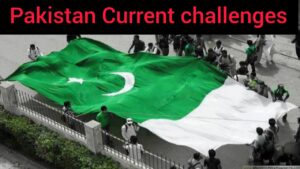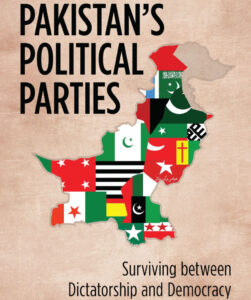A Nation in Flux: Pakistan’s Current Challenge

Pakistan, a nation of over 220 million people, stands at a crossroads. While recent news highlights like the election of Shehbaz Sharif and the bravery of a police officer battling mob violence offer glimpses of hope, the underlying issues facing the country remain complex and interconnected. This article delves into the current problems plaguing Pakistan, exploring the economic crisis, political turmoil, and social challenges that demand urgent solutions.
The Crippling Grip of Economic Woes
Pakistan’s economic situation continues to be a cause for major concern. The year 2022 saw a “trifecta” of challenges – political unrest, a crippling economic crisis, and devastating floods. The aftermath still reverberates. Inflation has soared, with food and fuel prices skyrocketing. The Pakistani Rupee has depreciated significantly, making imports more expensive and further straining the economy. Foreign reserves are critically low, raising fears of defaulting on international payments.
The roots of this crisis are multifaceted. Years of excessive external borrowing have taken their toll. The global rise in fuel prices due to the Ukraine war has exacerbated the situation. Internal political instability has hindered long-term economic planning and discouraged foreign investment. The devastating floods in 2022 caused billions in damage, impacting agriculture and infrastructure, further weakening the already fragile economy.
Navigating Political Turmoil
The recent election of Shehbaz Sharif as Prime Minister marked a return to a semblance of political stability. However, the path forward remains fraught with challenges. The legitimacy of the election has been disputed by the opposition party, Pakistan Tehreek-e-Insaf (PTI), led by Imran Khan. This political polarization further impedes progress on crucial economic reforms.
Pakistan’s history is marked by periods of military rule and political instability. This has hampered the development of strong democratic institutions and a culture of political compromise. The lack of consensus on key issues makes it difficult to formulate and implement long-term economic and social policies.
Social Challenges and Security Concerns
Pakistan grapples with several social issues that intersect with its economic and political woes. Poverty is widespread, and a large portion of the population lacks access to basic necessities like healthcare and education. Religious intolerance and extremism pose ongoing threats to social cohesion. Blasphemy laws are often misused, leading to violence against minorities.
Furthermore, Pakistan confronts security concerns emanating from ongoing militant activity by groups like the Tehrik-i-Taliban Pakistan (TTP). These groups target law enforcement officials and religious minorities, creating an atmosphere of fear and instability.

A Glimmer of Hope: Resilience and International Cooperation
Despite the daunting challenges, Pakistan possesses remarkable resilience. The recent bravery of a police officer who protected a woman accused of blasphemy serves as a testament to the courage and compassion that exist within the nation. Civil society initiatives and local entrepreneurs continue to drive innovation and progress.
International cooperation is crucial to help Pakistan navigate its current difficulties. The International Monetary Fund (IMF) can provide financial assistance, but this often comes with conditions of austerity that can further burden the poorest segments of society. Developed nations can play a role by offering debt relief, promoting trade, and supporting long-term development projects.
The Road Ahead: A Call for Unity and Action
Pakistan’s current problems demand a multifaceted approach. Addressing the economic crisis requires tackling inflation, stabilizing the currency, and attracting foreign investment. Political parties must bridge the divide and work towards national unity. This will enable the formulation and implementation of long-term economic and social reforms.
Strengthening democratic institutions and fostering a culture of tolerance are also essential. Law enforcement needs to be better equipped to tackle extremism and protect minority groups. Investing in education and healthcare will empower the population and contribute to long-term economic growth.
Pakistan’s story is far from written. The challenges are real, but the potential for a brighter future exists. By focusing on economic stability, political unity, and social justice, Pakistan can overcome its current problems and emerge as a stronger, more prosperous nation.
I was recommended this website by my cousin I am not sure whether this post is written by him as nobody else know such detailed about my trouble You are amazing Thanks
Your article helped me a lot, is there any more related content? Thanks!